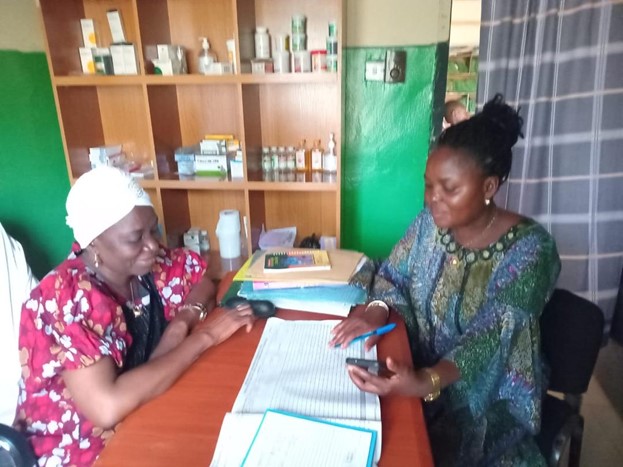Institutionalizing Gender and Social Inclusion in Government Health Agencies in Nigeria: From awareness to action
Despite the Government of Nigeria’s commitment to reach Universal Health Coverage (UHC) for the majority of its population[i], many of those facing the most vulnerability, such as women, young people, lower-income households, and people with disabilities, still cannot access affordable, high-quality health care and are uninsured.[ii]
In March and April 2023, the United States Agency for International Development (USAID) Local Health System Sustainability (LHSS) Project conducted a comprehensive Gender Equality and Social Inclusion (GESI) Analysis. It revealed significant knowledge gaps among health sector leaders in target states of Nasarawa, Plateau, and Zamfara regarding GESI practices, in other words, how to make health care services more accessible and better quality for women, young people, low-income households, and people with disabilities, and other marginalized groups. The analysis also found that the state agencies lacked GESI policies and did not have designated GESI focal points to support GESI integration in the health system. Consequently, many people in vulnerable situations, such as women and girls, persons with disabilities, and gender-diverse individuals, reported an inability to access care due to unaddressed GESI-related barriers.
GESI-aware culture makes a difference
A lack of attention to GESI in the health system results in worse health outcomes for people who are typically underserved and marginalized since they cannot always access health care services.
“Generally, [prior to the GESI training by LHSS], gender equality and social inclusion is not something that is much talked about, especially in government circles,” said Dr. Stephen Iliya Sasetu, Director of Planning, Research, and Statistics at the Nasarawa State Primary Health Care Development Agency (NAPHDA).
To address the identified gaps, LHSS organized GESI awareness-raising and knowledge application training for health leaders in Nasarawa, Plateau, and Zamfara states.
“The interactive sessions, infused with case studies and dynamic discussions, heightened staff awareness regarding the pervasive impact of gender and social disparities on health care access and outcomes,” said Dr. Prete Brenda Dada, Director of Planning, Research, and Statistics at the Plateau State Primary Health Care Board.
After participating in the training, Dr. Sasetu shared, “To a large extent, the workshop was pivotal in opening up our eyes to see the importance of really having GESI integrated into the workings of the Agency. For us at NAPHDA, it was an immediate buy-in. We designated an experienced and highly committed staff member who participated in the training as the GESI focal point and then began the process of mainstreaming GESI into the operations of the Agency, using the knowledge we gained from the training and the mentoring from LHSS.”
Institutionalizing GESI means leaving no one behind
With LHSS support, all six agencies in the three focus states designated staff as GESI focal points by the first quarter of 2024. Additionally, six months later, all six partner agencies in the three states have developed a comprehensive draft GESI policy. These policy documents provide a framework for institutionalizing and operationalizing GESI principles and promoting fairness, equity, and inclusivity in the health system.
Following the GESI training experience shared by NAPHDA in the Nasarawa state health sector meeting, Dr. Sasetu also reported that, “there is an ongoing discussion about having a statewide GESI policy that will guide operations in all sectors,” signaling the political will that exists for broader institutional change. LHSS Nigeria will continue providing technical support and capacity building to GESI focal points, focusing on equity integration, and mentoring health leaders in state government agencies on GESI integration. With LHSS support, populations facing vulnerability in target states are gaining access to high-quality health care, thereby improving their health outcomes and increasing the number of healthy people in Nigeria.

Photo credit: Dr. Benjamin Madaki.
[i] https://www.afro.who.int/countries/nigeria/news/nigeria-stakeholders-are-charting-sustainable-pathway-achieving-universal-health-coverage-all
[ii] Nigeria DHS 2018, as cited in https://www.thelancet.com/journals/langlo/article/PIIS2214-109X(22)00369-2/fulltext
